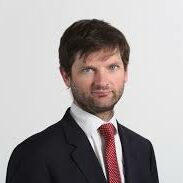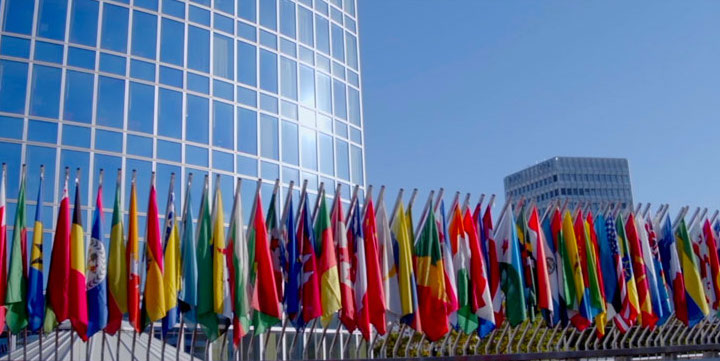“Although WIPO’s agenda and activities are driven by member states, the Director General has an important role in implementing policies and making senior appointments.”
There are 10 candidates declared to succeed Francis Gurry as WIPO Director General, when he retires in September this year after serving two six-year terms.
One of them will be nominated to be Director General by the WIPO Coordination Committee on March 5 and 6, before being formally appointed by the WIPO General Assembly. The Coordination Committee comprises 83 of WIPO’s 192 member states.
Who are the Candidates?
The 10 candidates include eight men and two women. There are three candidates from Asia, three from Latin America, two from Africa, and one each from Europe and central Asia. There are no candidates from North America. They are:
Prof. Adebambo Adewopo (Nigeria)
Mr. Marco Matías Alemán (Colombia)
Mr. Ivo Gagliuffi Piercechi (Peru)
Dr. Edward Kwakwa (Ghana)
Mr. Kenichiro Natsume (Japan)
Mr. Dámaso Pardo (Argentina)
Mr. Jüri Seilenthal (Estonia)
Mr. Daren Tang (Singapore)
Ms. Saule Tlevlessova (Republic of Kazakhstan)
Ms. WANG Binying (China)
These are all the candidates nominated by member states. It is believed that there are also three people who have nominated themselves independently; it was set to be decided today (January 16) whether any of them can join the race.
The declared candidates divide almost equally between WIPO insiders and outsiders. WANG Binying is a WIPO Deputy Director General responsible for the Brands and Designs Sector. Kenichiro Natsume has a slightly more junior role as Senior Director in the Patent Cooperation Treaty and Legal Affairs Department; Edward Kwakwa is Senior Director, Department for Traditional Knowledge and Global Challenges; and Marco Matías Alemán is Director, Patent Law Division.
Saule Tlevlessova has been President of the Eurasian Patent Office since 2016 but previously spent 19 years at WIPO in various roles. Jüri Seilenthal is not an IP specialist and is currently Director General of the External Economic and development Cooperation Department of Estonia’s Ministry of Foreign Affairs. However, he was previously Estonia’s Ambassador in Geneva and chaired the WIPO Coordination Committee from September 2011 to September 2012.
Beyond WIPO, Ivo Gagliuffi Piercechi, Dámaso Pardo and Daren Tang are current or recent heads of their respective national IP offices. Pardo was an IP lawyer before joining Argentina’s National Institute of Industrial Property (INPI) in 2016. Tang has led Singapore’s efforts to become a regional IP hub and has launched several innovative programs at the Intellectual Property Office of Singapore (SIPO), including a smartphone app.
Adebambo Adewopo is Professor at the Nigerian Institute of Advanced Legal Studies and former head of the Nigerian Copyright Commission.
Picking a Winner
The candidates are likely to be whittled down over several rounds of voting in the Coordination Committee, though the procedures also allow for consultations leading to consensus. In the last election, in 2008, there were 15 candidates and several rounds of voting. In the final round, Gurry secured 42 votes and his rival, Jose Graça Aranha from Brazil, received 41; though voting was secret, it was thought member states generally divided between developed and developing countries.
Although WIPO’s agenda and activities are driven by member states, the Director General has an important role in implementing policies and making senior appointments. It is also a prestigious position, and the voting may be influenced by political considerations and the need to balance roles in other international organizations.
The next Director General will be WIPO’s fifth. All of the previous four were men, with three coming from developed countries (the Netherlands, the United States and Australia) and one from Sudan. Given this history, there might be a preference for having a candidate from Asia or Latin America.
However, with three Latin American candidates, as well as two from Africa, the developing country vote may be split, unless some of the candidates pull out after the early rounds of voting and back others.
As the only European candidate, Seilenthal may hope to win the support of European countries, who make up about a quarter of the Committee. But there is no guarantee they will vote as a bloc and in any case his lack of IP experience may count against him.
Tlevlessova brings a combination of experience inside and outside of WIPO, and would also appeal to countries that believe it is time for WIPO to be led by a woman. On the other hand, Tang has a strong record at SIPO and could argue that he could bridge the developed/developing divide. He has also chaired WIPO’s Standing Committee on Copyright and Related Rights, which means he is well known to member state representatives.
Given China’s growing prominence in IP, and the lack until now of Asian leadership at WIPO, there could be a lot of support for Wang. However, in a blog post in December, the Center for Strategic & International Studies argued that the United States should oppose any candidate from China, based on concerns about the security of PCT applications: “Given China’s history of IP theft, a Chinese director general storing the world’s patents in Beijing would be disastrous.”
The successful candidate will be announced by March 6.

![[IPWatchdog Logo]](https://ipwatchdog.com/wp-content/themes/IPWatchdog%20-%202023/assets/images/temp/logo-small@2x.png)


![[[Advertisement]]](https://ipwatchdog.com/wp-content/uploads/2023/01/2021-Patent-Practice-on-Demand-1.png)
![[Advertisement]](https://ipwatchdog.com/wp-content/uploads/2024/04/UnitedLex-May-2-2024-sidebar-700x500-1.jpg)
![[Advertisement]](https://ipwatchdog.com/wp-content/uploads/2024/04/Artificial-Intelligence-2024-REPLAY-sidebar-700x500-corrected.jpg)
![[Advertisement]](https://ipwatchdog.com/wp-content/uploads/2024/04/Patent-Litigation-Masters-2024-sidebar-700x500-1.jpg)

![[Advertisement]](https://ipwatchdog.com/wp-content/uploads/2021/12/WEBINAR-336-x-280-px.png)
![[Advertisement]](https://ipwatchdog.com/wp-content/uploads/2021/12/2021-Patent-Practice-on-Demand-recorded-Feb-2021-336-x-280.jpg)
![[Advertisement]](https://ipwatchdog.com/wp-content/uploads/2021/12/Ad-4-The-Invent-Patent-System™.png)






Join the Discussion
No comments yet.